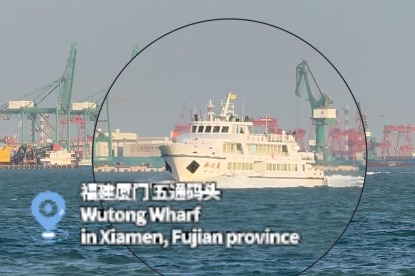Neither hostages nor cease-fire on his mind: China Daily editorial


The widespread protests and strikes that swept across Israel on Sunday after the recovery of the bodies of six hostages that had been held by Hamas would seem to have increased the pressure on Israeli Prime Minister Benjamin Netanyahu to reach an agreement on a cease-fire with the militant group.
But the anger over the deaths of the hostages, who were reportedly killed hours before their bodies were recovered in a tunnel in Rafah on Saturday, may have served the opposite purpose by prompting the Israeli leader to dump the ongoing cease-fire talks that involve Israel, the United States, Egypt and Qatar.
Hamas had initially prepared to release the six hostages as part of the temporary cease-fire pact that had appeared so near in the latest round of negotiations. But although Washington claims the death of the hostages will not derail the talks, the incident might give the Israeli prime minister, who blames the tragedy on Hamas, a new excuse to carry on with his operations in Gaza and the West Bank.
The large-scale Israeli military aggression into multiple towns in the West Bank launched from last week, under the excuse of fighting terrorism, when the cease-fire talks were at a critical juncture, indicates participating in negotiations might be just a stalling tactic of Netanyahu to fend off the pressure from home and abroad.
After about 11 months, despite the heavy losses that have been incurred in the Gaza Strip and beyond, Netanyahu has never been so close to realizing his goals, which include eliminating Hamas from Gaza and turning the Palestinian enclave into a buffer zone under Israel's control.
That explains why US officials have called for new urgency in reaching a deal as they have acknowledged that the incident may have thrown the negotiations into tumult, with US National Security Advisor Jake Sullivan saying that "the next few days will be critical" in the push to free the hostages still held in Gaza.
The sticking point of the talks is whether Israel will continue to maintain its control of the Philadelphi Corridor, which is a 14-kilometer strip of land along Gaza's border with Egypt. Netanyahu insists on Israel's control of the corridor that he thinks would prevent Hamas from smuggling arms through the tunnels beneath it.
That also serves to indicate that he has never sincerely considered the cease-fire deal, which Washington has told the world he supports, as it entails Israel's complete withdrawal from Gaza.
"The significance of this is that Hamas won't agree to it, so there won't be an agreement and there won't be any hostages released," said Israeli Defense Minister Yoav Gallant at a Thursday meeting of the Israeli security Cabinet.
Notably, in their statements late on Saturday, neither US President Joe Biden nor Vice-President Kamala Harris applied pressure — either explicit or implied — on Netanyahu to reach a deal. That's undoubtedly a worrying sign that Netanyahu will continue to stick to his guns with the de facto go-ahead of the US.
By taking advantage of the Hamas attack on Oct 7 to expand Israel's territory, and form a new buffer ring around it, Netanyahu would be able to hold power firmly in his hand, rendering the hostages' deaths as a sacrifice for his own political life, and as well as the necessary costs for him to make indelible "historic contributions" to his country.


































